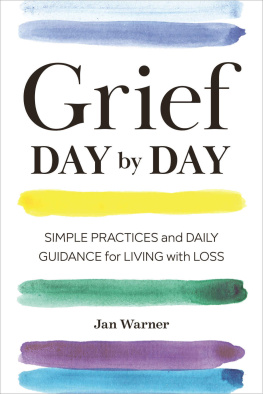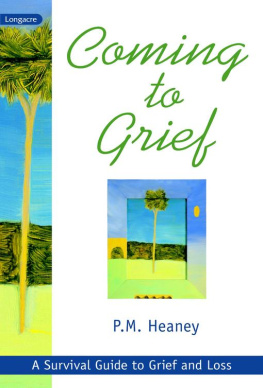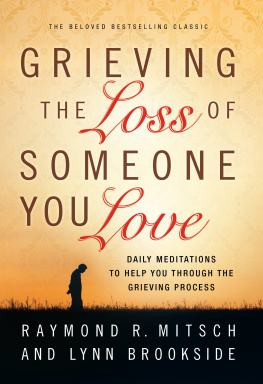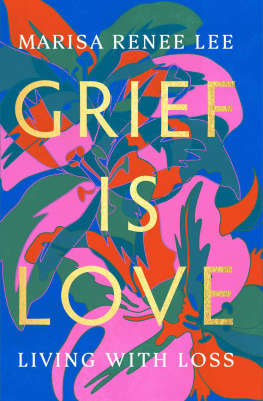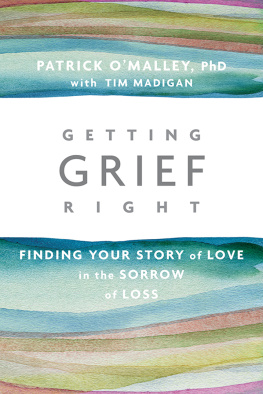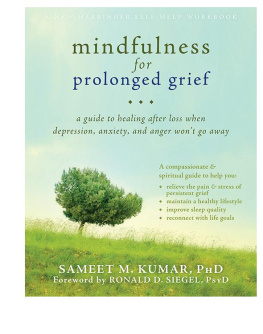Jan Warner - Everyday Madness On Grief, Anger, Loss and Love
Here you can read online Jan Warner - Everyday Madness On Grief, Anger, Loss and Love full text of the book (entire story) in english for free. Download pdf and epub, get meaning, cover and reviews about this ebook. year: 2018, publisher: Althea Press, genre: Detective and thriller. Description of the work, (preface) as well as reviews are available. Best literature library LitArk.com created for fans of good reading and offers a wide selection of genres:
Romance novel
Science fiction
Adventure
Detective
Science
History
Home and family
Prose
Art
Politics
Computer
Non-fiction
Religion
Business
Children
Humor
Choose a favorite category and find really read worthwhile books. Enjoy immersion in the world of imagination, feel the emotions of the characters or learn something new for yourself, make an fascinating discovery.
- Book:Everyday Madness On Grief, Anger, Loss and Love
- Author:
- Publisher:Althea Press
- Genre:
- Year:2018
- Rating:4 / 5
- Favourites:Add to favourites
- Your mark:
- 80
- 1
- 2
- 3
- 4
- 5
Everyday Madness On Grief, Anger, Loss and Love: summary, description and annotation
We offer to read an annotation, description, summary or preface (depends on what the author of the book "Everyday Madness On Grief, Anger, Loss and Love" wrote himself). If you haven't found the necessary information about the book — write in the comments, we will try to find it.
Jan Warner: author's other books
Who wrote Everyday Madness On Grief, Anger, Loss and Love? Find out the surname, the name of the author of the book and a list of all author's works by series.
Everyday Madness On Grief, Anger, Loss and Love — read online for free the complete book (whole text) full work
Below is the text of the book, divided by pages. System saving the place of the last page read, allows you to conveniently read the book "Everyday Madness On Grief, Anger, Loss and Love" online for free, without having to search again every time where you left off. Put a bookmark, and you can go to the page where you finished reading at any time.
Font size:
Interval:
Bookmark:
Contents
Everyday Madness offers a brilliant theory and definition of a modern malady, but what makes it so enticing is that its also a case study in the condition it describes. In other words, in identifying a previously undescribed territory, Lisa Appignanesi has wonderfully invented a previously unwritten form
Adam Thirlwell
Keen-eyed, unflinching in her honesty, Lisa Appignanesi carries us down into the depths through an inner landscape of unappeasable turmoil, as she moves towards knowledge of love and the serenity it brings. With piercing insight and many moments of intense poignancy, she illuminates the complexity and costs of a remarkable and passionate journey
Marina Warner
Wonderful, moving, extraordinary. It is sui generis. I feel enormously privileged to have read it twice. Its structure is remarkable an enacting of the last two years. Bravo, bravo
Edmund de Waal
Thoughtful, challenging, illuminating, truthful and moving. We all bear losses. Lisa Appignanesi breaks the isolation and helps us endure them
Susie Orbach
By deftly moving between the personal and the public, between childhood and adulthood, between the immediacy of feeling and the distance of reflection, Lisa Appignanesi constructs an anatomy of grief and its frequent but discomfiting attendant: rage. The private, the political, and the philosophical merge in a single story of a woman navigating the jolts, terrors, fury, and confusion that arrive after the death of her spouse
Siri Hustvedt
Some thinkers use the word trauma to characterize such states, but since mine is an experience shared by everyone who has suffered loss, I prefer to limit this overused diagnostic term to more narrow and more extreme conditions.


4th Estate
An imprint of HarperCollinsPublishers
1 London Bridge Street
London SE1 9GF
www.4thEstate.co.uk
First published in Great Britain by 4th Estate in 2018
Copyright Lisa Appignanesi 2018
Lisa Appignanesi asserts the moral right to be identified as the author of this work.
All reasonable efforts have been made by the author and the publisher to trace the copyright holders of the material quoted in this book. In the event that the author or publisher are contacted by any of the untraceable copyright holders after the publication of this book, the author and the publisher will endeavour to rectify the position accordingly.
A catalogue record for this book is available from the British Library.
All rights reserved under International and Pan-American Copyright Conventions. By payment of the required fees, you have been granted the non-exclusive, non-transferable right to access and read the text of this e-book on-screen. No part of this text may be reproduced, transmitted, down-loaded, decompiled, reverse engineered, or stored in or introduced into any information storage and retrieval system, in any form or by any means, whether electronic or mechanical, now known or hereinafter invented, without the express written permission of HarperCollins.
Source ISBN: 9780008300302
Ebook Edition August 2018 ISBN: 9780008300319
Version: 2018-08-16
For John
and our first grandson,
Manny
Without the thought of death, it is impossible to make out anything in a human being. Its mystery hangs over everything.
SVETLANA ALEXIEVICH
The death of a loved one is actually also the death of a private, whole, personal and unique culture, with its own special language and its own secret, and it will never be again, nor will there be another like it.
DAVID GROSSMAN
T HIS IS A BOOK about the kinds of states that float somewhere between diagnosed madness and daily life. They are ordinary enough states and yet they are extraordinary. Without toppling us over into the register of specified mental illness, they can nonetheless hover close and scary. They are part of what make us individuals and not statistics, subjects for narrative, rather than objects for the sorts of studies that feed drug trials, corporations, advertising campaigns or state records. Humans are ample, often suffering beings. The machine model of cognition, of information processing, just isnt adequate to our complexity.
I am the principal case in what follows, though really only a woman whose husband has recently died. His death launches me on a journey. Its not one that has an identifiable destination. Perhaps because of that the political and social atmosphere of the moment hover very close.
I have tried in the middle section of the book to investigate the ways in which our historical moment and the wider world could be understood as sharing a set of emotions with my own grieving state. Anger and loss are political, not simply personal feelings. They bleed into us collectively: the media and the social networks play their part. I have a hunch that the time we spend as and with disembodied beings feeds into these dark feelings, too.
Sometimes they can be assuaged or at least counterbalanced by hope. Luckily thats where I landed in the final part of this book.
I hope my children will forgive my exposure. I have tried to be circumspect. Their mother is a reliable enough person, but when it comes to writing, the writer steps in.
What Im talking about now is a very ancient part of human awareness. It may even be what defines the human although it [was] largely forgotten in the second half of the twentieth century. The dead are not abandoned. They are kept near physically. They are a presence. What you think youre looking at on that long road to the past is actually beside you where you stand.
JOHN BERGER
T HE SMALL TRANSLUCENT bottle of shampoo outlived him. It was the kind you take home from hotels in distant places. For over a year it had sat on the shower shelf where he had left it. I looked at it every day.
I couldnt bring myself to move it or use it.
When I finally picked it up, it was caked and slightly clammy to the touch, like perspiring, not quite healthy skin. I put my glasses on to make out the indistinct print on the front of the curve. For the first time I could see that, next to the stylized palm tree, vanishing letters spelled out Memory of Senses.
I put the bottle back on the shelf. Quickly.
Though I had rid the house of bagsful of clothes, unopened packs of tobacco, wires that belonged to defunct machines, and some of the other random leavings of life, I somehow couldnt chuck that tiny bottle.
Superstition.
We all know the dead inhabit select objects. Even when we might also believe that theyve gone to meet their maker or joined the elements in a field or river, or their everlasting souls have travelled up to Heaven to be judged by a supreme court at which angels bear witness to their deeds, good and bad, and eleven months of purgatory await.
Superstition: from the Latin over + stand. A presence stands over us, one whom we fear or who might just bring us luck. Or perhaps, as in surveillance, that presence compounds security and fear. Cicero, that hoary old philosopher who, according to one of my school teachers, had intoned something about diseases of the mind being more common and more pernicious than those of the body, had considered the word to be a derivation of
Next pageFont size:
Interval:
Bookmark:
Similar books «Everyday Madness On Grief, Anger, Loss and Love»
Look at similar books to Everyday Madness On Grief, Anger, Loss and Love. We have selected literature similar in name and meaning in the hope of providing readers with more options to find new, interesting, not yet read works.
Discussion, reviews of the book Everyday Madness On Grief, Anger, Loss and Love and just readers' own opinions. Leave your comments, write what you think about the work, its meaning or the main characters. Specify what exactly you liked and what you didn't like, and why you think so.


